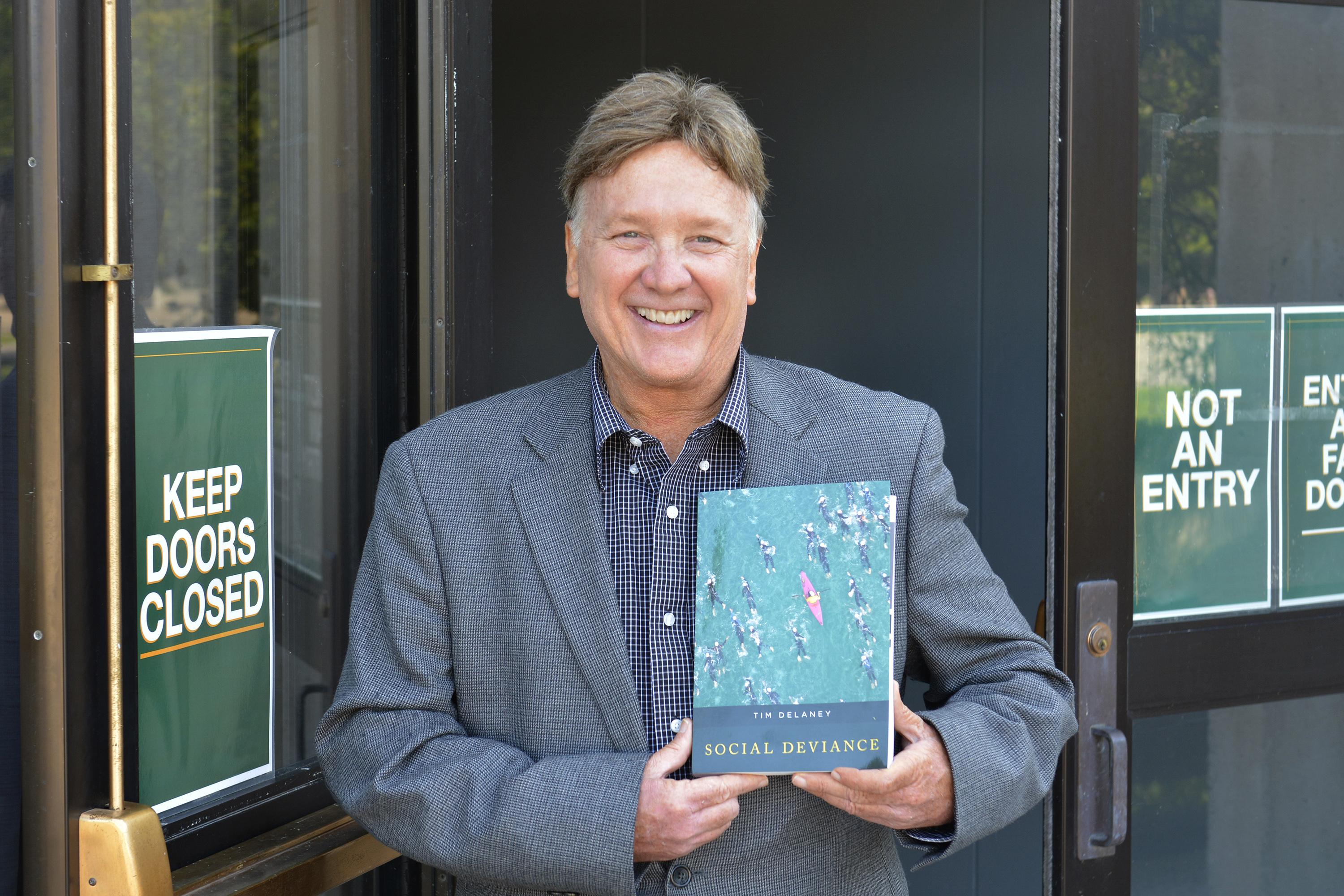Social conduct -- SUNY Oswego professor Tim Delaney deals with the sociology behind breaking the rules -- violating laws, breaching norms, disobeying regulations -- in his new textbook, "Social Deviance," from Rowman & Littlefield.
SUNY Oswego sociology professor and chair Tim Delaney recently published the textbook "Social Deviance," which he says is the natural heir to nearly all of the books -- 16 of them -- he has written before.
"Many of the books I've written so far really have led up to this book," Delaney said. "In 'Social Deviance,' I talk about violence and street crime; well, I've studied and written about street gangs. I've talked about a variety of crimes like terrorism and the mob, and I've written books discussing the Mafia, too. Theories about why people commit violence -- I've written multiple books on social theories. I've taught courses on white-collar crime -- that's another chapter in this new book."
The 452-page book from publisher Rowman & Littlefield deals with social deviance in its many forms, not just violence and sexual deviance, but cyber deviance, environmental deviance, substance deviance and much more.
"The very idea of social deviance, most people think they know what it is. Most people know when you violate a norm or break the law, that's deviant. But it's not that simple, when you really study deviance," Delaney said.
Even the definition of social deviance can be slippery. He writes about five different definitions: normative, statistical, absolutist, reactivist and relativist.
For example, those who subscribe to positive -- reactivist -- deviance point out that breaking the law sometimes can lead to the greater good, as when civil rights demonstrators flouted laws that themselves are considered deviant today. Absolutists, on the other hand, may assert such proscriptions as, "It's wrong because it's just inherently wrong."
Evolving ideas
Today, corporal punishment in schools makes big news of the wrong kind. In the past, it was more the norm, Delaney said.
"That's one of the things I discuss in Chapter 1: How ideas of deviance change over time," Delaney said. "At one time, a teacher could hit you at school and you were the wrong one. And once you got home, you were likely to get hit again by your parents: 'Why did your teacher hit you? What did you do wrong?'"
Students, not unlike most people, are fascinated with social deviance, he said. "Just the word 'deviant,' people are intrigued. Students have always loved a course on deviance. Most sociology professors want to teach it," said Delaney, whose own online course, "Sociology of Deviance," is fully subscribed this semester. "It's really a great course to write a book for."
Students will appreciate using the textbook, Delaney said, because he uses up-to-date examples of socially deviant behavior they have all heard about -- catfishing (using fabricated online identities to trick people), sexting, revenge postings on social media and the like. As with six earlier books, he includes examples from pop culture throughout.
Earlier books by Delaney, who has been interviewed and quoted by media across the nation, include "The Sociology of Sports: An Introduction," "Classical and Contemporary Social Theory: Investigation and Application," "Beyond Sustainability: A Thriving Environment" and "American Street Gangs," among others.




